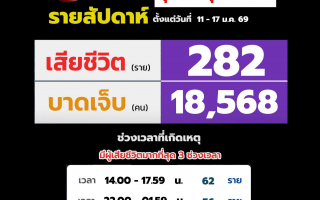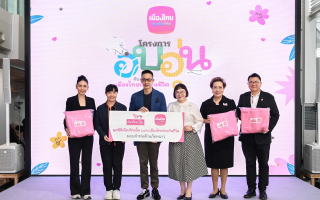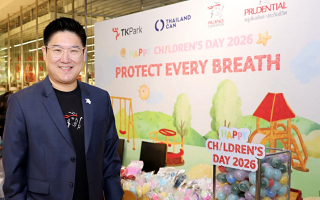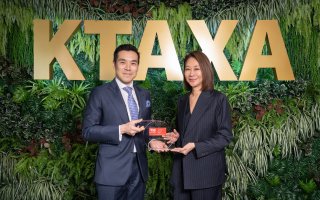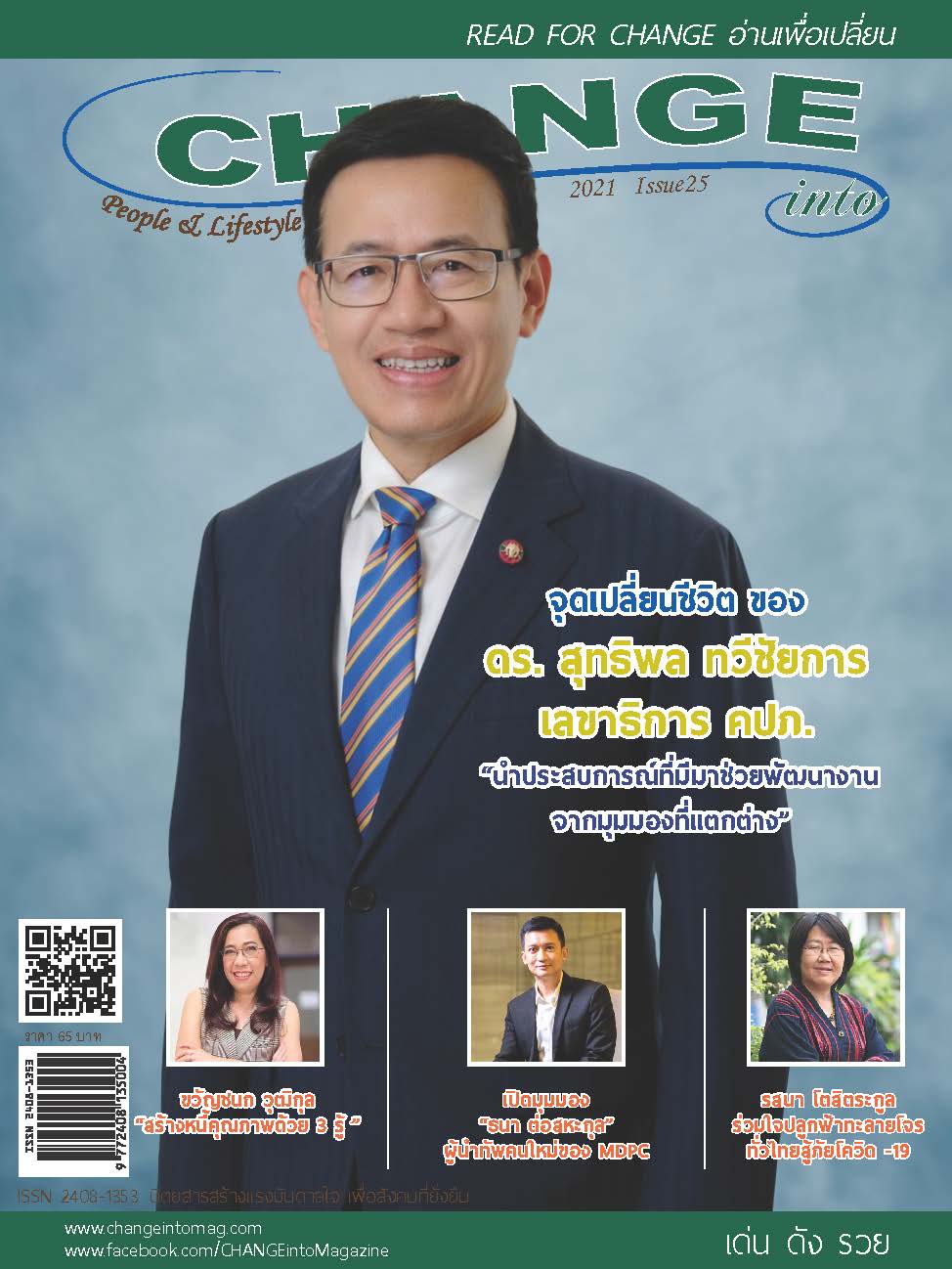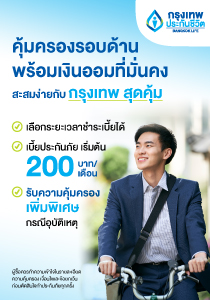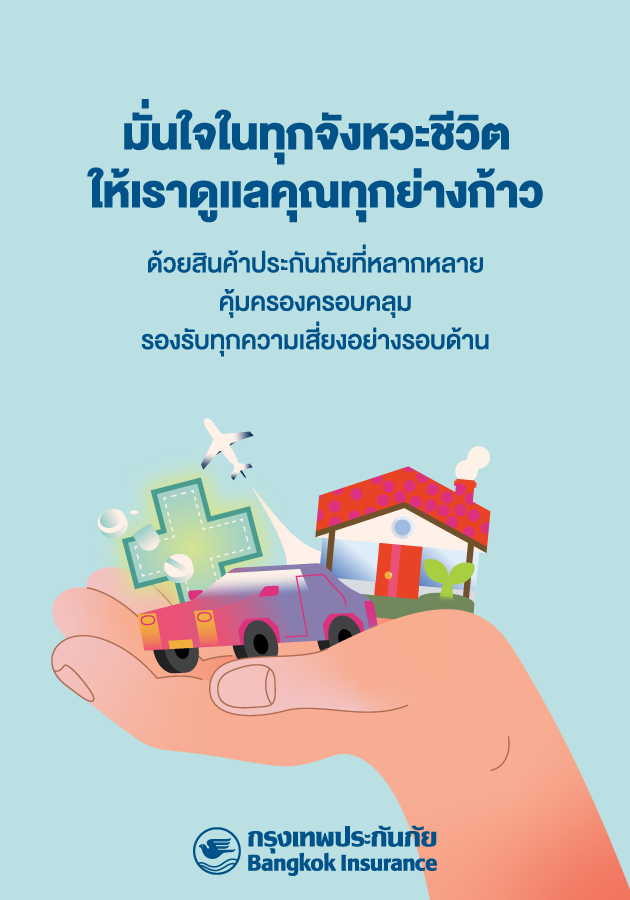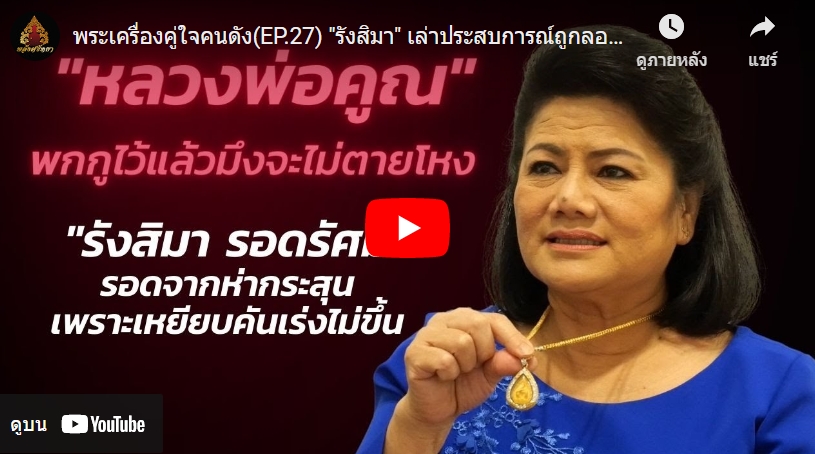รัฐจับมือเอกชนเสนอ 4 ความร่วมมือ เร่งเปลี่ยนไทยสู่สังคมคาร์บอนต่ำ
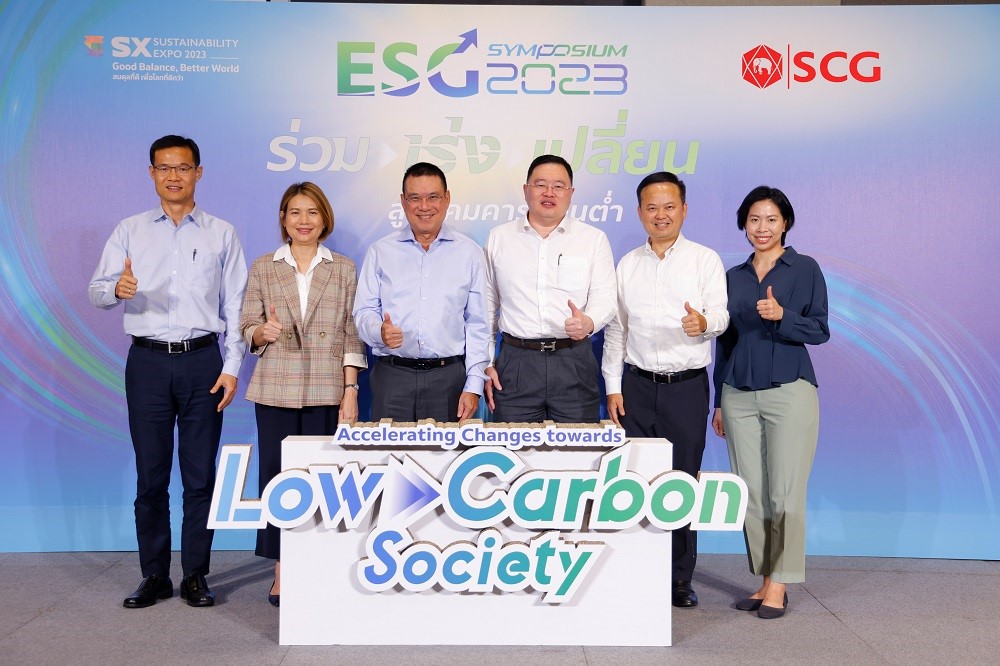
รัฐจับมือเอกชนเสนอ 4 ความร่วมมือ เร่งเปลี่ยนไทยสู่สังคมคาร์บอนต่ำ
ร่วมสร้างเมืองต้นแบบคาร์บอนต่ำ–เร่งผลักดันเศรษฐกิจหมุนเวียน–
เปลี่ยนสู่พลังงานสะอาดและยั่งยืน–ไม่ทิ้งใครไว้ข้างหลัง
2 ตุลาคม 2566 : กรุงเทพฯ - ภาครัฐ เอกชน ประชาสังคมกว่า 500 คน ผสานพลังระดมสมองเตรียมเสนอนายกรัฐมนตรี “4 แนวทาง เร่งเปลี่ยนไทยสู่สังคมคาร์บอนต่ำ” บูรณาการพิชิต Net Zero ปี 2065 1) ร่วมสร้าง “สระบุรีแซนด์บ็อกซ์” เมืองต้นแบบคาร์บอนต่ำแห่งแรกของไทย ขับเคลื่อนเศรษฐกิจด้วยอุตสาหกรรมสีเขียว เกษตรยั่งยืน ท่องเที่ยวเชิงนิเวศ 2) เร่งผลักดันระบบเศรษฐกิจหมุนเวียนเป็นวาระแห่งชาติ สร้างมูลค่าเศรษฐกิจจากวัสดุที่ใช้แล้ว นำร่อง 3 อุตฯหลัก บรรจุภัณฑ์-ยานยนต์-ก่อสร้าง 3) เปลี่ยนสู่พลังงานสะอาดและยั่งยืน ปลดล็อกข้อจำกัด เปิดเสรีซื้อ-ขายไฟพลังงานสะอาดด้วยระบบโครงข่ายไฟฟ้าอัจฉริยะ พัฒนาเทคโนโลยีแบตเตอรี่กักเก็บพลังงานสะอาด และส่งเสริมพลังงานทางเลือก 4) ไม่ทิ้งใครไว้ข้างหลัง ช่วยเหลือกลุ่มเปราะบางให้พึ่งพาตนเองได้ด้วยความรู้ เทคโนโลยีลดคาร์บอน แหล่งเงินทุนสิ่งแวดล้อม มั่นใจ 4 ข้อเสนอนี้สร้างเศรษฐกิจไทยเติบโตแบบคาร์บอนต่ำ
นายรุ่งโรจน์ รังสิโยภาส กรรมการผู้จัดการใหญ่ เอสซีจี กล่าวว่า “ขณะนี้เรากำลังเข้าสู่ภาวะโลกเดือด (Global Boiling) ซึ่งส่งผลกระทบที่เร็วและรุนแรงขึ้นต่อทุกชีวิตในโลกทั้งด้านเศรษฐกิจ สังคม สิ่งแวดล้อม เอสซีจีจึงเชิญชวนภาครัฐ เอกชน ประชาสังคมกว่า 500 คน ระดมสมองหาแนวทางกู้วิกฤตดังกล่าว เพื่อนำเสนอต่อท่านนายกรัฐมนตรี ในงาน ESG Symposium 2023 วันที่ 5 ตุลาคมที่จะถึงนี้”

นายธรรมศักดิ์ เศรษฐอุดม รองกรรมการผู้จัดการใหญ่ เอสซีจี กล่าวว่า “ทุกภาคส่วนอยากเห็นการทำงานแบบบูรณาการให้เศรษฐกิจไทยเติบโตควบคู่กับการลดก๊าซเรือนกระจกสุทธิเป็นศูนย์ เพื่อเปลี่ยนไทยสู่สังคมคาร์บอนต่ำให้เกิดขึ้นจริง จึงเสนอ 4 แนวทางความร่วมมือ ได้แก่ 1) ร่วมสร้าง “สระบุรีแซนด์บ็อกซ์” ที่มีปัญหาสิ่งแวดล้อมสะสมให้เป็นเมืองต้นแบบคาร์บอนต่ำแห่งแรกของไทย ขับเคลื่อนเศรษฐกิจด้วยอุตสาหกรรมสีเขียว เกษตรยั่งยืน ท่องเที่ยวเชิงนิเวศ 2) เร่งผลักดันระบบเศรษฐกิจหมุนเวียนให้เป็นวาระแห่งชาติ ขณะนี้มี 3 อุตสาหกรรมต้นแบบแล้ว คือ บรรจุภัณฑ์ ยานยนต์ ก่อสร้าง การผลักดันเป็นวาระแห่งชาติจะดึงดูดให้อุตสาหกรรมอื่น ๆ ร่วมขยายผล เพื่อเพิ่มมูลค่าทางเศรษฐกิจ 3) เปลี่ยนสู่พลังงานสะอาดและยั่งยืน ปลดล็อกข้อจำกัดจากการใช้พลังงานฟอสซิลเป็นพลังงานสะอาด ให้ทุกคนเข้าถึงและใช้ได้สะดวก อาทิ เปิดเสรีซื้อ-ขายไฟฟ้าพลังงานสะอาดด้วยระบบโครงข่ายไฟฟ้าอัจฉริยะ (Grid Modernization) ส่งเสริมการลงทุนพัฒนาเทคโนโลยีแบตเตอรี่กักเก็บพลังงานสะอาด (Energy Storage System) และส่งเสริมพลังงานทางเลือก เช่น พลังงานไฮโดรเจน เชื้อเพลิงชีวมวล ขยะจากชุมชน พืชพลังงาน 4) ไม่ทิ้งใครไว้ข้างหลัง ช่วยเหลือทุกคนโดยเฉพาะกลุ่มเปราะบางให้มีความตระหนักรู้ เข้าถึงเทคโนโลยีลดคาร์บอนและแหล่งเงินทุนสิ่งแวดล้อม ผมเชื่อว่าหากทุกภาคส่วนบูรณาการตามข้อเสนอจะทำให้เศรษฐกิจไทยเติบโตแบบคาร์บอนต่ำสร้างความสมดุลให้สิ่งแวดล้อม ซึ่งสอดคล้องกับหลักปรัชญาของเศรษฐกิจพอเพียงและโมเดลเศรษฐกิจ BCG”
.jpg)
ดร.กิติพงค์ พร้อมวงค์ ผู้อำนวยการสำนักงานสภานโยบายการอุดมศึกษา วิทยาศาสตร์ วิจัยและนวัตกรรมแห่งชาติ (สอวช.) กล่าวว่า “เราจะร่วมสร้าง “สระบุรีแซนด์บ็อกซ์” เป็นเมืองต้นแบบคาร์บอนต่ำที่เป็นฐานไปสู่การเป็นพื้นที่ปล่อยก๊าซเรือนกระจกสุทธิเป็นศูนย์ หรือ Net Zero emission แห่งแรกของไทย ความท้าทายอยู่ที่จังหวัดสระบุรีเป็นฐานการผลิตของอุตสาหกรรมหนักและมีปัญหาสิ่งแวดล้อมสะสม หากเปลี่ยนให้เป็นเมืองคาร์บอนต่ำหรือ Net Zero ได้สำเร็จ ซึ่งการเป็นได้นั้นต้องใช้นวัตกรรมและรูปแบบการทำงานข้ามภาคส่วนจากการทำงานนี้จะเป็นรูปแบบและบทเรียนให้จังหวัดอื่นๆ ทำได้เช่นกัน การจะทำให้ภาคอุตสาหกรรม เปลี่ยนเป็นอุตสาหกรรมสีเขียว ลงทุนให้ใช้พลังงานสะอาดได้อย่างเต็มที่ ผลักดันให้พัฒนาส่งเสริมการใช้งานและส่งออกสินค้ากรีน เช่น ปูนซีเมนต์คาร์บอนต่ำ Bio Energy Pallet ภาคการเกษตร เปลี่ยนเป็นเกษตรยั่งยืน เช่น ทำนาเปียกสลับแห้ง ช่วยลดการใช้น้ำ ลดต้นทุน ลดการปล่อยก๊าซเรือนกระจก รวมทั้งปลูกหญ้าเนเปียร์และนำของเหลือจากการเกษตรไปแปรรูปเป็นพลังงานทดแทน ช่วยลดคาร์บอนและสร้างรายได้ให้ชุมชน ร่วมปลูกป่าชุมชนเพิ่ม 38 แห่งทั่วจังหวัดเพิ่มพื้นที่สีเขียว ช่วยดูดซับคาร์บอน และนำไปสู่การท่องเที่ยวเชิงนิเวศ สร้างรายได้ให้ชุมชน”

นางสาวพรรรัตน์ เพชรภักดี รองผู้อำนวยการใหญ่ สภาอุตสาหกรรมแห่งประเทศไทย กล่าวว่า “ระบบเศรษฐกิจหมุนเวียนจะประสบความสำเร็จ เช่นในประเทศสวีเดน และฟินแลนด์ ต้องกำหนดเป็นวาระแห่งชาติ ให้เกิดการปฏิบัติจริงอย่างแพร่หลาย สำหรับประเทศไทยมี 3 อุตสาหกรรมที่ได้นำร่องจนเกิดผลสำเร็จแล้ว คือ บรรจุภัณฑ์ ยานยนต์ และก่อสร้าง ทั้งนี้ การขยายผลไปสู่อุตสาหกรรมอื่นๆ ต้องกำหนดกฎหมาย นโยบาย และมาตรฐานคัดแยก จัดเก็บขยะให้เป็นระบบเดียวกันทั้งประเทศ ตลอดจนสร้าง Eco System สนับสนุนสิทธิประโยชน์ในการลงทุนและพัฒนาเทคโนโลยีที่เกี่ยวข้องกับเศรษฐกิจหมุนเวียน รวมทั้ง รณรงค์ใช้สินค้ากรีนที่ผลิตจากวัสดุรีไซเคิลหรือวัสดุชีวภาพ ออกกฎหมายระบุปริมาณอย่างชัดเจน โดยหน่วยงานภาครัฐนำร่องจัดซื้อจัดหาสินค้ากรีน เพื่อให้เกิดการยอมรับอย่างแพร่หลาย”

นายเจริญชัย เฉลียวเกรียงไกร ประธานสภาอุตสาหกรรม จ.สระบุรี กล่าวว่า “ก๊าซเรือนกระจก ร้อยละ 70 ในประเทศไทยมาจากภาคพลังงาน เพื่อบรรลุเป้าหมาย Net Zero จึงต้องเปลี่ยนจากพลังงานฟอสซิลซึ่งปล่อยคาร์บอนสูงมาสู่พลังงานสะอาด โดยร่วมกันปลดล็อกข้อจำกัด เพื่อยกระดับความมั่นคงทางพลังงานและยั่งยืนในประเทศ และรองรับการเติบโตของเศรษฐกิจ โดยเปิดเสรี ซื้อ-ขายไฟฟ้าพลังงานสะอาดด้วยระบบโครงข่ายไฟฟ้าอัจฉริยะ (Grid Modernization) ทั้งภาครัฐ เอกชนใช้เครือข่ายไฟฟ้าร่วมกัน เพื่อให้เข้าถึงและใช้ได้สะดวกยิ่งขึ้น ส่งเสริมการลงทุนพัฒนาเทคโนโลยีแบตเตอรี่กักเก็บพลังงานสะอาด ให้มีประสิทธิภาพสูง ราคาเหมาะสม ส่งเสริมการผลิตให้เป็น New S-Curve ตลอดจนสนับสนุนการใช้พื้นที่ว่างเปล่าเพื่อกักเก็บพลังงานในรูปแบบต่าง ๆ เช่น พลังงานน้ำ พลังงานความร้อน พลังงานกล พลังงานเคมี อีกทั้ง พัฒนาพลังงานทดแทนใหม่ ๆ ให้อยู่ในแผนพลังงานชาติ เช่น พลังงานไฮโดรเจนพืชพลังงาน ขยะชุมชน ของเสียจากโรงงาน ตลอดจนปรับปรุงนโยบายและสิทธิประโยชน์ที่จูงใจให้ใช้พลังงานสะอาด โดยตั้งเป้าใช้พลังงานไฟฟ้าจากพลังงานทดแทน เพิ่มจากร้อยละ 13 เป็นร้อยละ 50 ในปี 2050”
.jpg)
นางสาวจิตใส สันตะบุตร คนรุ่นใหม่ใจรักษ์โลก กลุ่ม SDG7 Global Youth Ambassador for Southeast Asia กล่าวว่า “ประเทศไทยจะสามารถเปลี่ยนผ่านไปสู่สังคมคาร์บอนต่ำได้อย่างราบรื่น ต้องไม่ทิ้งใครไว้ข้างหลัง โดยเฉพาะกลุ่มเปราะบางที่ขาดทรัพยากร และความรู้ความเข้าใจในการปรับตัว ได้แก่ SMEs แรงงาน เกษตรกร และชุมชน เราควรแบ่งกลุ่มผู้ได้รับผลกระทบและจัดสรรความช่วยเหลือตามความต้องการอย่างเหมาะสม ซึ่งต้องอาศัยความร่วมมือจากทุกภาคส่วน ช่วยเหลือกลุ่มเปราะบาง ให้มีความตระหนักรู้ เข้าถึงเทคโนโลยีลดคาร์บอนและแหล่งเงินทุนสิ่งแวดล้อมทั้งในและต่างประเทศ ซึ่งมีมากถึง 52 ล้านล้านบาท โดยขอเสนอให้ไทยตั้งเป้าขอรับเงินสนับสนุนโครงการเปลี่ยนผ่านสู่สังคมคาร์บอนต่ำ ปีละ 350,000 ล้านบาท เช่น กองทุนนวัตกรรมจัดการน้ำให้กลุ่มเกษตรกรรับมือสภาพภูมิอากาศแปรปรวน กองทุนฟื้นฟูและเพิ่มพื้นที่ป่าพร้อมสร้างรายได้จากคาร์บอนเครดิต นอกจากนี้มุ่งพัฒนาทักษะฝีมือแรงงานที่ได้รับผลกระทบจากการเปลี่ยนผ่านให้ปรับตัวทันท่วงทีและพึ่งพาตัวเองได้”
“ข้อเสนอทั้ง 4 ข้อนี้ จะนำเสนอต่อท่านนายกรัฐมนตรี ในงาน ESG Symposium 2023 วันที่ 5 ตุลาคมนี้ ที่ศูนย์ประชุมแห่งชาติสิริกิติ์ ผมเชื่อมั่นว่า หากทุกภาคส่วนร่วมมือบูรณาการกันอย่างแท้จริง ไม่มองเป้าหมายแค่เพื่อตัวเอง หรือเป้าหมายขององค์กรใดองค์กรหนึ่ง แต่เพื่อความอยู่รอดของประเทศ และโลกของเรา ร่วม-เร่ง-เปลี่ยนแก้วิกฤติโลกเดือด โดยไม่ทิ้งใครไว้ข้างหลัง จะทำให้เศรษฐกิจไทยเติบโต พร้อมโลว์คาร์บอนเป็นจริงได้แน่นอน” คุณธรรมศักดิ์ กล่าวปิดท้าย
ESG Symposium 2023 ซึ่งจัดขึ้นเป็นปีที่ 11 ในหัวข้อ “ร่วม เร่ง เปลี่ยน สู่สังคมคาร์บอนต่ำ” ณ ศูนย์การประชุมแห่งชาติสิริกิติ์ มีผู้ร่วมงานจากทุกภาคส่วนกว่า 1,500 คน โดยมีวิทยากรระดับโลก ร่วมแบ่งปันประสบการณ์และตัวอย่างที่หลากหลาย ชมนิทรรศการความร่วมมือและนวัตกรรมเทคโนโลยีเพื่อสังคมคาร์บอนต่ำจากองค์กรชั้นนำทั่วโลก ผู้สนใจรับชมออนไลน์ได้ที่ Facebook และ Youtube ของ SCG ในวันที่ 5 ตุลาคมนี้เวลา 12.00-17.15 น.
ดูรายละเอียดเพิ่มเติม www.scg.com

Government and Private Sector Propose 4 Key Strategies to Steer Thailand
Towards a Low-Carbon Society: NDC Accelerator, Circular Economy Acceleration, Energy Transition, and Just Transition
2 October 2023: Bangkok - Over 500 representatives from the government, private sector, and civil society have joined forces to propose "4 Approaches to Accelerate Thailand's Transition to a Low-Carbon Society" to the Prime Minister. The collective effort aims to achieve Net Zero by 2065 using the following strategies: 1) NDC Accelerator by involving collaboration to create the "Saraburi Sandbox," Thailand's first model city for low carbon emissions. This initiative is designed to stimulate the economy through green industries, sustainable agriculture, and eco-tourism;2) Circular Economy Acceleration by making the circular economy a national agenda, generating economic value from recycled materials, focusing on three main industries: packaging, automotive, and construction; 3) Energy Transition by unlocking restrictions and liberalizing the production and trade of clean energy through grid modernization, developing battery storage technologies for clean energy, and promoting alternative energy sources; 4) Just Transition by supporting vulnerable groups to become self-reliant through knowledge, low-carbon technology, and access to green financial resources. These four proposals are geared towards steering the Thai economy towards a low-carbon model.

Roongrote Rangsiyopash, President & CEO of SCG, said, "We are currently entering a state of 'Global Boiling,' which is escalating rapidly and severely affecting every aspect of life worldwide, spanning the economy, society, and environment. In response, SCG has invited over 500 participants from the government, private sector, and civil society to brainstorm solutions to this crisis. These recommendations will be presented to the Prime Minister at the ESG Symposium 2023 on 5 October."

Thammasak Sethaudom, Executive Vice President of SCG, stated, "All stakeholders are eager to witness integrated efforts to expand the Thai economy alongside achieving net-zero greenhouse gas emissions. Our goal is to make Thailand's transition to a low-carbon society a tangible reality. We propose four collaborative strategies: 1) NDC Accelerator which involves collaboration to transform the 'Saraburi Sandbox'—a city grappling with environmental challenges—into Thailand's first low-carbon model city, driven by green industries, sustainable agriculture, and eco-tourism; 2) Circular Economy Acceleration by prioritizing the circular economy and making it a national agenda. At present, three industries serve as models: packaging, automotive, and construction. Elevating this to a national priority will inspire other industries to amplify their efforts, thus enhancing economic value; 3) Energy Transition to clean and sustainable energy, unlocking restrictions by moving awayfromfossil fuels to more readily available and convenient clean energy sources. This involves liberalizing clean electricity trading through grid modernization, bolstering investment in energy storage technologies, and supporting alternative energy sources, including hydrogen, biofuels, community waste, and energy crops; and 4) Just Transition by empowering everyone, particularly vulnerable groups, by increasing awareness, facilitating access to carbon-reducing technologies, and offering environmental financial sources. I am confident that if every sector collaborates based on these recommendations, the Thai economy will progress toward a low-carbon direction, ensuring environmental balance. This aligns with the philosophy of the Sufficiency Economy and the BCG economic model."
.jpg)
Kitipong Promwong, President of the Office of National Higher Education, Science, Research, and Innovation Policy Council (NXPO), commented, "We aim to develop ‘Saraburi Sandbox' as a model city with low carbon emissions, laying the foundation towards becoming Thailand’s first Net Zero emission city. A significant challenge lies in the fact that Saraburi is a base for heavy industries, which come with significant environmental issues. If we can successfully transform it into a low-carbon or Net Zero city, it would require innovations and cross-sectoral collaboration. This initiative will then serve as a model and a lesson for other provinces to follow suit. For the industrial sector, we need to transition to green industries, invest in maximizing the use of clean energy, and promote the use and export of green products, such as low-carbon cement and Bio Energy Pallets. Meanwhile, the agricultural sector is shifting to sustainable farming practices, such as alternate wetting and drying techniques in rice farming, which reduce water consumption, costs, and greenhouse gas emissions. Efforts also encompass growing Napier grass while leftover paddies undergo transformation into alternative energy sources. This not only reduces the carbon footprint but also generates community income. Additionally, establishing 38 community forests across the province helps increase green spaces that absorb carbon and paves the way for eco-tourism, benefiting local communities."
Panrat Phechpakdee, Senior Vice President of the Federation of Thai Industries, commented, "For the circular economy system to be as successful as it has been in countries like Sweden and Finland, it must be made a national agenda with widespread implementation. Three industries in Thailand have already taken the lead and achieved significant success: packaging, automotive, and construction. To replicate this success to other sectors, it's essential to introduce laws, policies, and standardize waste separation and collection systems nationwide. Also, an ecosystem should be established to promote investment benefits and technological development related to the circular economy. This includes promoting the use of green products made from recycled or biological materials, enacting laws specifying clear quantities, and leading public agencies to prioritize the procurement of green products to encourage widespread acceptance."

Charoenchai Chaliewkriengkrai, Chairman of the FTI Saraburi Provincial Chapter, stated, "70% of greenhouse gases in Thailand come from the energy sector. To achieve the "Net Zero goal, we must transition from high-carbon fossil fuels to clean energy. Collaborative efforts are crucial to unlocking limitations, elevating energy security and sustainability in the country, and supporting economic growth by liberalizing the trade of clean electric energy through grid modernization. The public and private sectors should collectively utilize the electricity grid for easier access and convenience. It's important to stimulate investment in developing efficient and cost-effective battery storage technologies, promote production as a part of the New S-Curve, and utilize vacant spaces for various forms of energy storage, such as hydropower, thermal energy, mechanical energy, and chemical energy. Additionally, we should develop new alternative energies to be included in the national energy plan, such as plant-derived hydrogen energy, community waste, and industrial waste, and revise policies and incentives that encourage the use of clean energy. The goal is to increase the use of electricity from alternative energy sources from 13% to 50% by 2050."

Jitsai Santaputra, a young environmental enthusiast and SDG7 Global Youth Ambassador for Southeast Asia, expressed, "For Thailand to smoothly transition to a low-carbon society, we must ensure that no one is left behind, especially vulnerable groups lacking resources and understanding of the adjustments required, such as SMEs, laborers, farmers, and communities. We should categorize those affected and provide appropriate support based on their needs. Collaborative efforts across all sectors are crucial to aid these vulnerable groups in raising their awareness, offering them access to low-carbon technologies and environmental funding sources domestically and internationally, which amount to approximately 52 trillion Baht. I would like to propose that Thailand target securing funding for projects transitioning to a low-carbon society at 350 billion Baht annually, such as the water management innovation fund for farmers to cope with changing climatic conditions and the forest rehabilitation and expansion fund, which can generate income from carbon credits. Additionally, we should focus on developing the skills and expertise of workers affected by this transition, enabling them to adapt promptly and become self-reliant."

"These four proposals will be presented to the Prime Minister at the ESG Symposium 2023 on 5 October at the Queen Sirikit National Convention Center. I am confident that if every sector truly collaborates and integrates its efforts, not just focusing on individual or organizational goals but on the survival of our country and our planet, collectively, we can accelerate changes to address the global warming crisis without leaving anyone behind. The Thai economy will certainly thrive in a low-carbon direction," concluded Thammasak.
The ESG Symposium 2023, marking its 11th year, themed "Accelerating Changes Towards Low Carbon Society," is being held at the National Sirikit Convention Center. The symposium expects over 1,500 attendees spanning various sectors. The event features world-renowned speakers who will share diverse experiences and insights. Participants can explore exhibitions of collaborations and innovative technologies for a low-carbon society from leading organizations worldwide. Those interested can stream the event live on SCG's Facebook and YouTube channels on 5 October from 12:00 to 17:15 hours.
For more information, please visit www.scg.com


